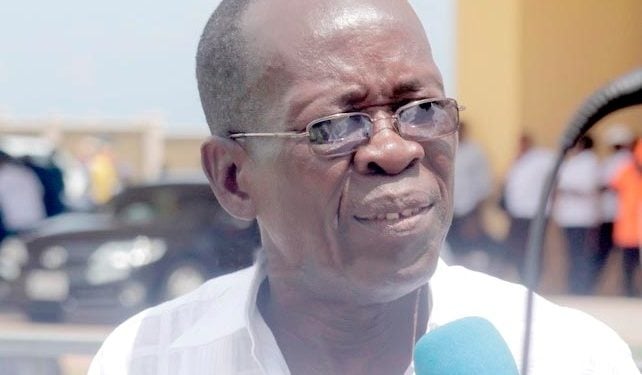Mr. Abraham Koomson, the Secretary-General of the Ghana Federation of Labour (GFL), has expressed strong opposition to the Ghanaian government’s proposed policy of deporting foreign nationals involved in illegal activities, particularly illegal mining (galamsey). He argues that deportation is a lenient approach that circumvents the due process of law and fails to hold perpetrators accountable for their crimes. Instead, Mr. Koomson advocates for the prosecution of all individuals, regardless of nationality, engaged in illegal activities within Ghana’s borders. He believes that prosecution would serve as a more effective deterrent and ensure that justice is served, thereby upholding the rule of law and fostering a sense of equality before the law.
The government’s policy, announced by Interior Minister Alhaji Mohammed Muntaka Mubarak, aims to expedite the removal of foreign nationals involved in illegal mining, fraud, and other illicit activities. This approach is seemingly targeted at curbing the influence of foreign nationals, particularly Chinese nationals, in illegal economic activities that have detrimental effects on the environment and society. However, Mr. Koomson contends that deportation will not address the root causes of these problems and may even exacerbate the situation by creating a perception of impunity. He fears that deporting offenders without prosecution sends a message that foreign nationals can exploit Ghana’s resources and escape the full consequences of their actions.
Mr. Koomson, a seasoned labour advocate, emphasizes the importance of equal justice under the law. He criticizes the potential disparity between the treatment of foreign nationals, who would be deported, and Ghanaian citizens involved in the same illegal activities, who would face prosecution. Such a dual system of justice, he argues, is unacceptable and undermines the principle of fairness. It also sets a dangerous precedent, potentially encouraging further criminal activity by creating the impression that certain individuals are above the law. He insists that all perpetrators, regardless of their origin, must be subject to the same legal processes and penalties.
Further highlighting his concerns, Mr. Koomson points out that the government’s deportation policy could have unintended negative consequences for legitimate industries that rely on foreign labour. He warns that the indiscriminate deportation of foreign nationals could disrupt economic activities and lead to instability. Furthermore, he argues that deporting offenders without thoroughly investigating their networks and collaborators allows criminal structures to remain intact, enabling them to continue their operations even after some members have been removed. The focus, he insists, should be on dismantling these networks and holding all those involved accountable, regardless of their nationality.
In addition to advocating for prosecution over deportation, Mr. Koomson calls for the complete abolishment of Legislative Instrument (LI) 2462, expressing concerns that amendments to this legislation could be exploited to facilitate further environmental degradation. He believes that maintaining or amending LI 2462 creates loopholes that allow for continued exploitation of natural resources. By abolishing the instrument entirely, he argues, a clearer and stronger legal framework can be established to protect the environment and prevent future abuses. He sees this as a crucial step towards ensuring sustainable development and safeguarding Ghana’s natural heritage.
Ultimately, Mr. Koomson’s position is rooted in the belief that upholding the rule of law is paramount to addressing the challenges posed by illegal activities in Ghana. He believes that prosecution, rather than deportation, is the most effective way to deter future crimes, ensure accountability, and build public trust in the legal system. He urges the government to reconsider its policy and adopt a more robust approach that prioritizes justice, fairness, and the long-term well-being of Ghana and its citizens. By holding all perpetrators accountable, regardless of their nationality, Ghana can send a clear message that illegal activities will not be tolerated and that the rule of law will be upheld.














